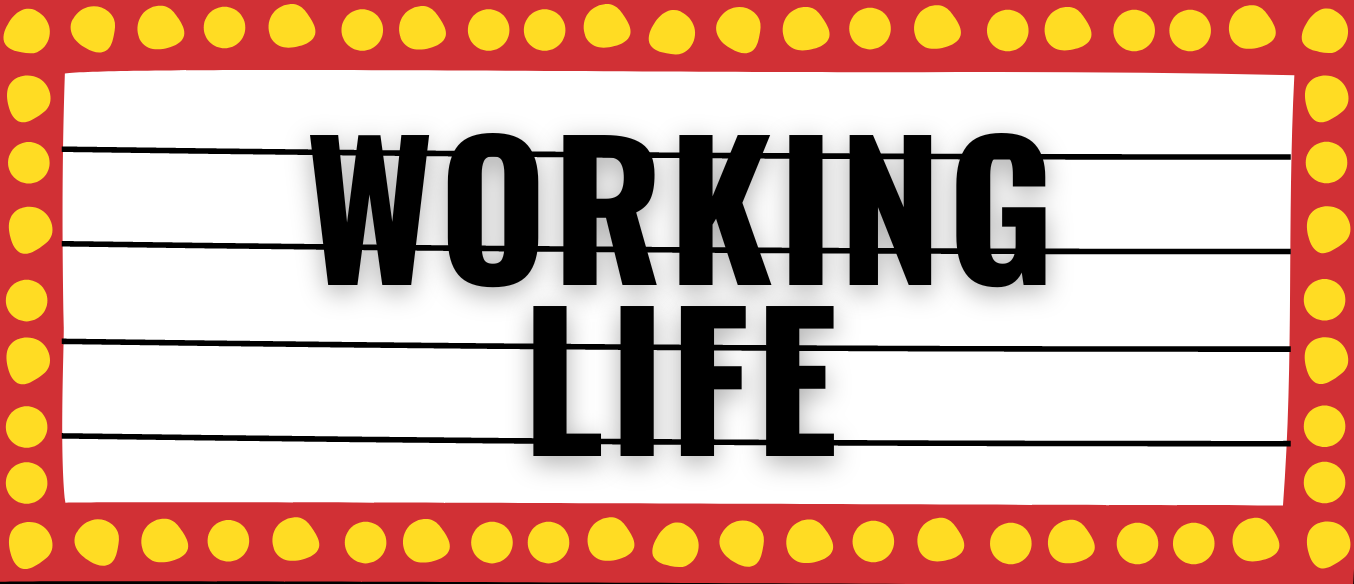We create and consume pop culture that shapes our beliefs about work and our relationship with our jobs. For adults, work is portrayed, for better or worse, in TV and movies like The Office, Severance, and The Consultant; in fiction like the bestseller Lessons in Chemistry; and in music like Working 9-5.
Coming soon: Does whistling while you work really cultivate teamwork, make time fly, help you set the pace, or feel cheerful like a chick-a-dee?
But our exposure to work in pop culture starts much earlier. Heck, I read Mike Mulligan and the Steam Shovel and Richard Scarry’s Busy People to my kids before they could even toddle.
How We Show Up at Work
I know you wanted a new acronym (thank me later), so I present to you EWL, Expectations of Working Life — a concept adapted (and, by adapted, I mean pilfered) from a construct researchers have dubbed organizational readiness.
In a look-see at Disney animations, Martyn Griffin and some other British smarties proposed1 organizational readiness to mean…
“…anticipatory expectations about future organizational life that children develop as they imbibe the cultural influences to which they are exposed.”
Griffin and company enlisted organizational as a catch-all for people systems — like households, non-employment scenarios like schools and armed forces, and fraternities — and not just workplaces.
Griffin acknowledged, as I do, that pop culture is just one influence on EWL. Upbringing, experiences, social norms, economics, and — here’s a secret we’ll unwrap at a later date — even heredity play roles probably more powerful. But the shadow of popular culture, including that cast over the kiddos, shouldn’t be left unexamined.
Cinema assumes a pedagogical role in the lives of many people. It may not be the intent of a film-maker to teach audiences anything, but that does not mean that lessons are not learned. — bell hooks (in Reel to Real)
From Organizational Readiness to Expectations of Working Life (EWL)
Knowing that Heigh Ho will delve specifically into work-related beliefs and interactions, I respectfully replace Griffin’s term with Expectations of Working Life for a few reasons:
To specify working life, rather than organizations. In contrast to Griffin, I consider working life the broader term, defined by…
Our identity in the context of our job roles
How we engage with others
Our all-important relationship with the tasks of our jobs.
Paid, voluntary employment — not households, school, or military.
I’ve broadened the definition to address expectations of working life across our lifespan. Griffin focused on kids and, for sure, the foundation of our expectations of working life — like with all aspects of life — starts taking shape in childhood. But that early process never ends; it may even accelerate when we get into the workplace and measure our lived experience against those childhood impressions.
Organizational readiness has a different, better-known definition. It's a change management term related to an organization’s readiness for systemic change.2
Heigh Ho is publishing a series that decodes Snow White — mostly Disney’s original version. (We’ll get into the heart of the story soon, and I promise Heigh Ho will not exclusively be a Snow White Substack. Given the publication’s name and the learning opportunity, however, this seems like the right place to start.)
Snow White and the Seven Dwarfs, like much of pop culture, gives insight into our beliefs about work that helps us understand ourselves and our jobs. And it provides a conduit to explore hot topics in work — job crafting, child labor, toxic workplaces, DEI and well-being, and labor relations, to name a few — in a style unlike the usual articles that’ll lull you into a slumber so deep even a prince’s peck wouldn’t rouse you.
The stage is not fully set, but eager to grasp the low-hanging fruit, we’ll start with Whistle While You Work within the next issue or two. Later, I’ll circle back with more of the film’s plot and backstory of its creator, Walt Disney. In fact, I’ll probably mix up the order a lot to keep things interesting.
LinkedIn Peek-In
Christopher Grygos announced that The Ford Foundation is hiring a Director of Organizational Effectiveness and Excellence. Looks like a compelling opportunity.
Jen Arnold live-streamed The Invisible Drivers of Wellbeing. I attended and recommend it highly. Unlike wellbeing drivers, a recording of the session is visible… here.
Obehi Alofoje and Ngozi Weller announced a new podcast, The Wellbeing Rebellion, promising “a fresh and dynamic take on the whole workplace wellbeing debate.” Sounds like a winner.
Griffin, M., Learmonth, M., & Piper, N. (2018). Organizational readiness: Culturally mediated learning through Disney animation. Academy of Management Learning & Education, 17(1), 4-23.
Miake-Lye, I. M., Delevan, D. M., Ganz, D. A., Mittman, B. S., & Finley, E. P. (2020). Unpacking organizational readiness for change: an updated systematic review and content analysis of assessments. BMC health services research, 20(1), 1-13.





